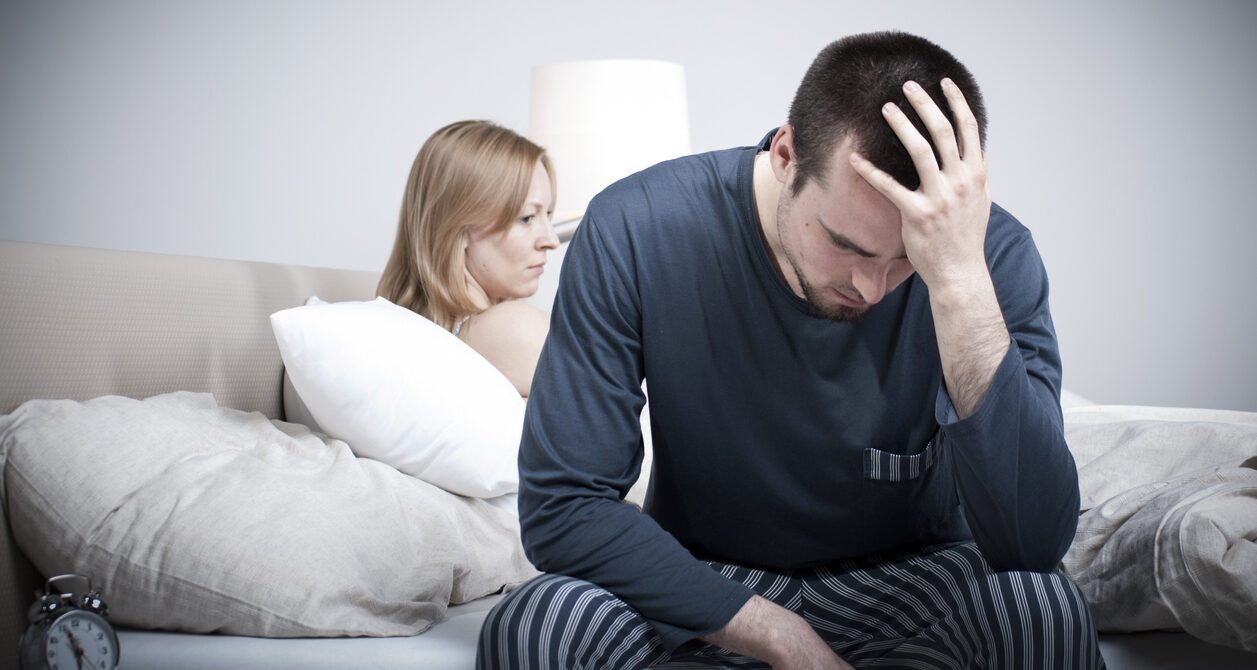Lost Your Sex Drive? Maybe It’s Your Hormones
This article is based on scientific evidence and clinical experience, written by a licensed professional and fact-checked by experts.
Posted: August 11, 2020
Estimated reading time: 5 minutes
In This article

News FLASH: Women are hormonal creatures! Ok, you probably already knew that, but you might not know how hormones affect your sex drive.
Fluctuations in female sex hormones, like estrogen, testosterone, oxytocin, and progesterone, can play a big role in your libido across the month and in different seasons of life. We’re going to talk about what you can do about it.
Overcoming Hormones to Have a Better Sex Life
Women are hormonal creatures – it’s how God made you, and it’s not a bad thing. It does, however, create challenges that take some special attention to overcome. One such challenge is the ebb and flow (no pun intended) of your sex drive as related to your menstrual cycle.
Women’s Sex Hormone Peak
Women hit their sex hormone peak in late teens to mid-twenties. As this starts to trail off over time, there’s usually still a hormonal surge that starts 1-3 days before ovulation and continues for a few days after. The body says “Hey, I’m about to drop an egg, go find your man so you can fertilize it.” It’s during these days that women reach their peak erotic motivation for the month. Sex therapists call this spontaneous and intrinsic motivation to connect sexually “Initiating Desire”.
Unfortunately, life doesn’t always cooperate so that these days fall during convenient times to connect. A lot of women express, “Well honey, I was feeling pretty horny about 2 this afternoon, but by the time we got the kids in bed it was ALL gone.”
The Pill Can Make it Worse
To further the problem, chemical birth control, i.e. the pill, can neutralize the mid-month natural hormone boost resulting in diminished sex drive. It can also reduce blood flow to the genitals, which can make reaching orgasm more difficult. Testosterone, estrogen, and progesterone are all at their lowest during menstruation, making it the period of least desire. It is the decline of these same hormones that reduce libido in women during menopause.
For all these reasons, it’s pretty normal for a mature married woman to only experience initiating desire a few days a month.
So what can you do about it?
Now that we have a little bit better understanding of what the problem is, let’s take a look at some ways to deal with it.
EMBRACE RECEPTIVE DESIRE
When sex therapists talk about arousal we mean one of two types: 1) Subjective Arousal or 2) Physical Arousal.
Subjective arousal is the awareness of sexual desire, that is being horny.
Physical arousal refers to the changes that happen in the body in response to sexual stimuli, like pupil dilation, increased heart rate, and blood pressure, accelerated breathing, flush skin, nipple erection, blood flow to the genitals, vaginal lubrication, breast enlargement.
It’s common to think of subjective arousal coming first, then physical arousal. I feel horny, so I pursue sexual connection and become physically aroused. We call this sequence initiating desire because it leads to the initiation of a sexual experience. It’s not the only option though. Receptive Desire refers to an openness to sexual connection with an understanding that subjective arousal often follows physical arousal.
“I sometimes use an example from our taste template to illustrate. Have you ever been out on date night with your spouse, engaging the age old question, “Where do you want to eat?” Well, if you have a craving for something, say Mexican, that’s like initiating desire. Sometimes you don’t have a craving, “I don’t care, I’m not really hungry.” After you get to the restaurant, you taste the salsa and smell the fajitas sizzling, your mouth starts to water. When your food arrives you tear into it like a crazed animal. As the two of you recline, fully satisfied, you look at your spouse and say “this was a good idea.”
Following this script, you might say to yourself, “I’m not feeling horny or thinking about sex right now, but I know once we get into it I’ll start feeling desire.”
Think About Sex
It’s very helpful to think about sex. Use fantasy to imagine past experiences that were super arousing. Think about new positions, places, and scenarios you might want to explore with your spouse. Thinking about sex causes the body to arouse physically, which in turn increases desire. Remember, for women, physical arousal often precedes desire.
Plan for Sex
Planning out regular times for sexual connection with your spouse can help keep the connection happening despite hormonal fluctuations. Plus, knowing about a sexual encounter in advance gives you reason to think about the upcoming encounter and be flirtatious with your spouse about it. This builds desire increasing the excitement and pleasurableness of the experience.
See Your Doctor
Cortisol, Estrogen, Thyroid, and Testosterone are all significant hormone influences for female sexual desire. If they are out of normal balance then it’s going to cause problems. Your doctor can make a referral to an endocrinologist who can check on these for you. If they are out of normal range they may be able to get you on track with medications and or supplements.
Back to topThis article is based on scientific evidence and clinical experience, written by a licensed professional and fact-checked by experts.
About the Author

Josh Spurlock
Josh Spurlock MA, LPC, CST, has a BA in Biblical Languages and a Masters in Counseling. He is a Licensed Professional Counselor (LPC), holding licenses in Missouri, Colorado, and Florida. He is also a Certified Sex Therapist (CST), Level 2 AEDP Therapist, and an Ordained Minister. He is an Advanced Practice Clinician, with over 10,000 hours of clinical experience. He specializes in Marriage Counseling, Sex Therapy, Family Counseling, and works with Executives, Pastors, Business Owners, and Ministry Leaders. Learn more about Josh Spurlock at JoshSpurlock.com.
Learn More About JoshIn This article
References
- Basson, R. (2001). Using a different model for female sexual response to address women’s problematic low sexual desire. Journal of Sex &Marital Therapy, 27(5), 395-403.
- Leiblum, S. R., Koochaki, P. E., Rodenberg, C. A., Barton, I. P., & Rosen, R. C. (2006). Hypoactive sexual desire disorder in postmenopausal women: US results from the Women’s International Study of Health and Sexuality (WISHeS). Menopause, 13(1), 46-56.
- Dennerstein, L., Randolph, J., Taffe, J., Dudley, E., & Burger, H. (2002). Hormones, mood, sexuality, and the menopausal transition. Fertility and Sterility, 77, 42-48.
Share this article
View more articles

Navigating Conflict and Reconciliation with Adult Children: Practical Tips for Parents
By: Danielle Schaefer







